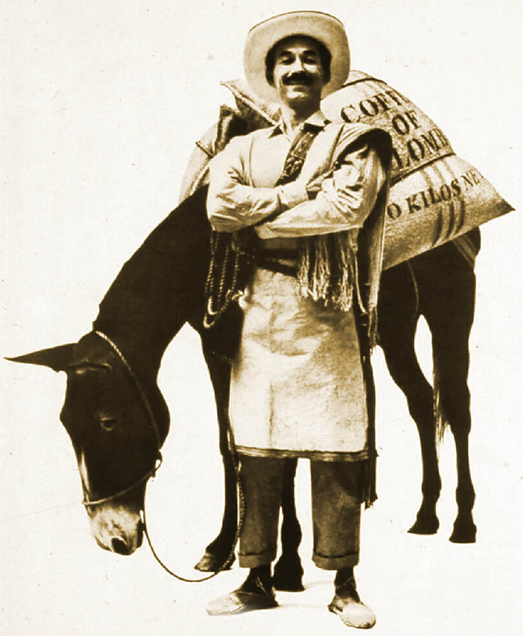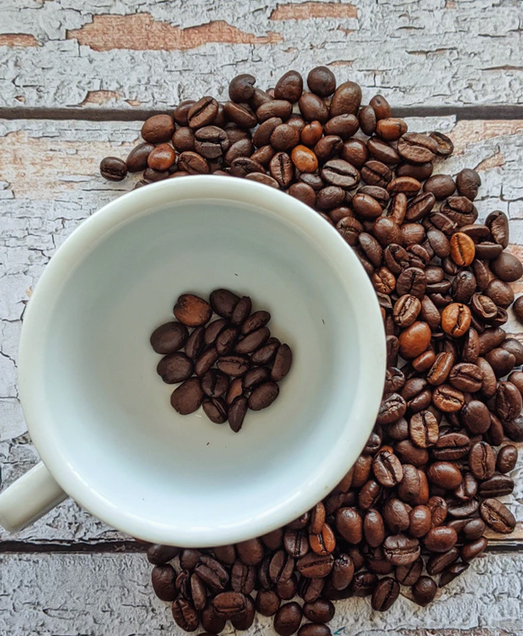Getting to know Colombia's Coffee

A great force in the field of coffee strikes back.
Anyone who loves espresso has never tasted Colombian coffee. Representing almost 10% of world coffee production, Colombia is famous for its delicious and aromatic Arabica, which finds its way into many espresso blends, from the most famous and commercial to the most special and sophisticated.
Colombian coffee is a coffee worth getting to know better - are we ready for a trip to South America?
Brief History of Colombian Coffee
 The first coffee trees were introduced to Colombia in the early 19th century, at the initiative of a missionary, Francisco Romero. The spread of the crop was very slow, while the distrust of the farmers but also the civil conflicts made things even more difficult. However, in the first half of the 20th century, the industry began to grow rapidly, which resulted in the establishment of the "Colombian National Coffee Producers Organization", which proved to be a decisive step in the further development and dissemination of Colombian coffee.
The first coffee trees were introduced to Colombia in the early 19th century, at the initiative of a missionary, Francisco Romero. The spread of the crop was very slow, while the distrust of the farmers but also the civil conflicts made things even more difficult. However, in the first half of the 20th century, the industry began to grow rapidly, which resulted in the establishment of the "Colombian National Coffee Producers Organization", which proved to be a decisive step in the further development and dissemination of Colombian coffee.
The National Agency created in the sixties and its own mascot, Juan Valdez. Juan is a Colombian farmer with a poncho, hat and mustache, carrying coffee bags on his faithful mule, Conchita. Juan was used to distinguish the coffees that have their exclusive origin in Colombia, while over the years he became a very beloved figure in the Colombian public.
Today, Colombia is a truly credible force in the coffee industry, as it is the third largest coffee producing country in the world, behind only Brazil and Vietnam - however, since Vietnam produces mainly Robusta, while a significant part of Brazilian production This also applies to Robusta coffee, Colombia is the first Arabica coffee producer in the world, with more than 11,500,000 sacks each year. Coffee cultivation in Colombia represents almost 40% of the country's total agricultural production, but also 4% of its GDP, while since 2007 Colombian coffee is considered a product of protected designation of origin.
 Που καλλιεργείται ο φημισμένος καφές της Κολομβίας;
Που καλλιεργείται ο φημισμένος καφές της Κολομβίας;
Colombian coffee is produced, for the most part, in an area of the country called the "Coffee Triangle". The microclimate of the region is influenced by the Colombian Andes, while the temperature, the rich vegetation and the frequent rains guarantee the ideal conditions for the cultivation of coffee, but also for its quality. In recent years, there are microcultures outside the "coffee triangle", which focus mainly on quality and not on mass production and belong to young farmers who want to make a difference.
Indicative of the importance of coffee cultivation for Colombia is the fact that Unesco added the "Coffee Culture Landscape in Colombia" to the World Heritage Sites in 2011, while many plantations and cities have been erected around Coffee crops are now popular tourist destinations for coffee lovers and more.
What does Colombian coffee taste like?
Colombian coffee, like other coffees in Central and South America, is characterized by balance. Usually, Colombian coffees are characterized by sweetness, moderate body and normal acidity. The delicious palette of Colombian coffees is dominated by notes of caramel and nuts, while mild floral aromas and fruity aftertaste are not uncommon. Due to their nature, Colombian coffees are widely used in blends, as through blending they can "tame" coffees with different taste profiles, such as raw Asian beans or exotic, full-bodied African coffees, while they also go well with strong Robusta. In recent years, however, Colombia has begun to be considered a significant "player" in the specialty coffee scene, and many coffee lovers prefer to enjoy Colombian coffee as a single variety, ideal for espresso.
If you want to try Colombian coffee, Lavazza espresso blender Tierra Colombia is an ideal choice, as it consists of 100% wet processed Arabica beans from the Meta mountain range. Lavazza Tierra Colombia is characterized by harmony, sweetness and mild taste, while the mouth is dominated by notes of fruit and flowers.
In more practical options, single-variety coffees from Colombia can be found in capsules compatible with Nespresso machines, such as Lavazza Colombia (with floral aromas and fruity notes) and 101Caffe Colombia (with hazelnut and caramel notes).
Coffee is a great journey - and if Colombia falls far short, we can always find Juan Valdez and his Conchita and take them to South America with just a few sips.










